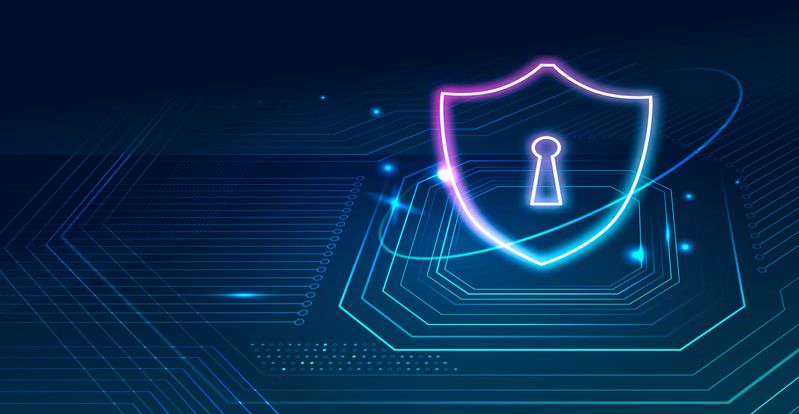
VPN: E-commerce Security
The internet has revolutionized the way we conduct business, and e-commerce has become an integral part of our lives. But while online transactions have certainly made life easier, they can also open up businesses to a wide range of security risks. To ensure the safety and privacy of their customers, businesses must have robust security measures in place, including using a reliable VPN (Virtual Private Network). A VPN provides an extra layer of encryption that helps protect your data from hackers, malware attacks, unauthorized access attempts, and other cyber threats. In this article, we’ll look at the importance of using a VPN for e-commerce security and how to set it up for maximum protection. With the right setup and configuration, you can ensure your business is operating safely and securely. So let’s get started!
Understanding E-commerce Security
E-commerce security is an essential component of any online business. It involves protecting customer data, preventing malicious actors from accessing the website or server, and ensuring that transactions are completed safely and securely. To ensure the safety of your customers and data, it’s important to have a comprehensive understanding of e-commerce security.
The most important aspect of e-commerce security is to ensure secure network connections with a reliable VPN (a virtual private network). This will create an encrypted tunnel between your company’s network and the customer’s device, allowing for safe communication between both parties. Additionally, make sure that your website is regularly updated with the latest security measures to protect against potential threats. Lastly, use strong passwords on all accounts associated with your website and employ two-factor authentication wherever possible.
These steps can help protect your e-commerce business from malicious actors and cybercriminals. By taking these precautions, you can rest assured that your customers will feel secure when making purchases through your website.
By taking the necessary steps to ensure e-commerce security, you can ensure that your customers have a positive and secure shopping experience. Now that you know how to keep your business safe, it’s time to look into the various types of online transactions and how they are secured.
Types of Online Transactions
Online transactions are increasingly pervasive in today’s digital world, and it is important to ensure secure connections for all types of online purchases. Different types of transactions require different levels of security depending on the type of goods or services being transacted. For example, purchasing physical items such as clothes or electronics requires a secure payment method such as PayPal or credit card, while services such as software downloads may only require an email address for authentication.
When making any purchase online, be sure to use a reliable VPN (a virtual private network) to create a secure connection between your network and the remote server you are accessing. This can help protect your data from potentially malicious actors and also ensure that your payments are not intercepted by third parties. Additionally, be aware of public wifi networks that may be insecure and can potentially put you at risk if used for online transactions.
By taking these precautions and understanding the security requirements associated with different types of online transactions, you can rest assured that your personal information will remain safe when shopping online.
Setting Up a VPN for E-commerce Security
Setting up a secure Virtual Private Network (VPN) is essential for any e-commerce business to ensure their customers’ data remains safe and secure. A VPN provides an encrypted connection between the company network and remote users, allowing confidential information to be transmitted securely over public networks. To set up a VPN, businesses should first research and choose a reliable provider that offers secure connections and meets their specific needs. Once a provider has been chosen, the next step is to install the necessary software or hardware on both the company network and any remote devices that will need access. Finally, companies must configure security protocols such as firewalls, encryption standards, and authentication methods to ensure that all traffic is encrypted before it reaches its destination. By setting up a reliable VPN with strong security measures in place, e-commerce businesses can provide their customers with peace of mind in knowing their data is safe from malicious actors when making online purchases.
Setting up a secure Virtual Private Network (VPN) is an essential step for any e-commerce business. With the right provider, strong security measures, and correct configuration in place, companies can ensure their customers’ data remains safe and secure when making online purchases. Now that you know the basics of setting up a VPN, it’s time to explore how to choose the best provider for your needs!
Choosing the Right VPN Provider
Choosing the right VPN provider is essential for any e-commerce business looking to ensure its customers’ data remains secure. The first step is to research providers and select one that meets specific needs such as security protocols, encryption standards, and authentication methods. Additionally, it’s important to look for providers who offer reliable connections and strong customer support. Once a provider has been chosen, businesses should ask for a trial period or demo of their services before committing to a long-term plan. This will allow them to test out the service and make sure it fits their requirements. By taking the time to do the necessary research and choose a reliable provider, e-commerce businesses can rest assured knowing that their customer’s data is safe from malicious actors when making online purchases.
Configuring Your Network Settings
Configuring your network settings is a critical step in setting up a secure e-commerce environment. By configuring your network correctly, you can ensure that only authorized users can access the application and other services. Properly configured networks also help protect against malicious actors attempting to gain access to your business’s sensitive data. To start, you’ll want to establish a virtual private network (VPN) connection between all of your remote workers or employees, as well as any corporate or personal networks that need access to the application. You’ll also want to make sure that all internet traffic is routed through an encrypted tunnel provided by a reputable internet service provider (ISP). Finally, you’ll need to set up remote access VPNs for each remote server or device so that employees can securely connect from anywhere. With the right configuration, businesses can rest assured that their sensitive data remains safe and secure from online threats.
Establishing Secure Connections with Remote Workers and Servers
Establishing secure connections with remote workers and servers is an essential part of preserving the security of any e-commerce organization. It’s important to ensure that all remote workers have access to their corporate network, but they must be able to do so securely. A virtual private network (VPN) connection can provide a secure layer of encryption between the employee’s device and the company’s server, ensuring that all data is transmitted safely and securely. Additionally, when connecting to public wifi networks, employees should use a VPN connection for added protection against potential malicious actors attempting to gain access to confidential information. By utilizing a VPN connection for remote workers and servers, businesses can prevent unauthorized access to sensitive data as well as maintain secure network traffic over public networks. This will help protect online transactions from cyber criminals while simultaneously allowing remote employees to access the company’s resources securely.
Set up VPN, secure access policies, secure network traffic, test connection, and ensure privacy.
The first step to ensuring secure network access for remote workers and servers is installing and activating a virtual private network (VPN) software. This software creates a secure tunnel between the employee’s device and the company’s server, encrypting all data transmitted through this connection. This will help protect online transactions from malicious actors while allowing remote employees to access their company resources securely. Additionally, the VPN software should be updated regularly today ahead of any potential security threats.
Once the VPN software has been installed, it’s important to create secure access policies for remote employees and users. These policies should include rules regarding which applications can be accessed through the VPN connection as well as which resources can be accessed remotely. By setting up these rules, companies can ensure that all data shared over the network is protected from unauthorized access.
Another key component of maintaining e-commerce security is ensuring that there is an adequate layer of security for company network traffic. Companies should take measures such as using firewalls and other forms of encryption to incorrect their network traffic from potentially malicious actors. Additionally, companies should ensure that their internet service provider (ISP) blocks malicious domain interevent attempts at gaining access to confidential information on their networks.
Monitoring Network Activity Regularly to Ensure Safety and Security
Monitoring network activity regularly is an essential step for any e-commerce business to ensure the safety and security of its customers. It’s important to monitor all network traffic, including that which is transmitted over public wifi networks, remote access VPNs, and other connections. By doing so, businesses can identify any suspicious or malicious activity that may be occurring on the company’s networks. Additionally, companies can use this information to ensure that their employees are only accessing resources that are allowed by corporate policy and not engaging in activities that could put the company at risk. Regular monitoring of network activity can also help with compliance with applicable privacy laws and regulations. Finally, monitoring network activity can also help businesses detect any potential attempts at data theft or other malicious activities aimed at compromising the security of customer data.
Maximizing e-Commerce Security with a VPN
With the increasing prevalence of e-commerce businesses, online transactions must be secured and protected from potential malicious activity. A virtual private network (VPN) is an excellent way to ensure secure connections between remote workers, customers, and business partners. A VPN creates a secure tunnel for data to travel through, protecting it from being accessed by those without authorization. By encrypting all internet traffic, a VPN provides an additional layer of security to protect user information from being intercepted or stolen by hackers. Furthermore, using a VPN allows remote employees to access their company’s networks securely over the public internet without having to rely on their Internet Service Provider (ISP). This can be particularly useful for companies that have employees working remotely or who need access to corporate resources while traveling. Finally, a VPN connection also ensures that all network connections remain anonymous and untraceable, ensuring complete privacy while browsing or transacting online. With these benefits in mind, any e-commerce business should strongly consider implementing a reliable VPN solution to maximize security and protect customer data.
Enhancing Data Encryption & Authentication on Public Wifi Networks Increasing User Anonymity by Masking IP Addresses
As the use of public wifi networks continues to grow, e-commerce businesses need to ensure their customers’ data remains secure and private. Enhancing data encryption and authentication on public wifi networks is one-way businesses can ensure their users’ personal information stays protected. Encryption scrambles the data transmitted over a network so that only authorized parties have access to it, while authentication verifies the identity of the person accessing the network.
By implementing these security measures, e-commerce businesses can provide their customers with peace of mind when shopping online and help ensure their transactions remain secure.
Reducing the Risk of Malware Attacks & Unauthorized Access Attempts Protecting Against ISP Throttling & Surveillance Activities
E-commerce businesses need to take the necessary steps to protect their customers from a variety of online threats. Reducing the risk of malware attacks and unauthorized access attempts is essential for any business dealing with sensitive customer data. Utilizing antivirus software, firewalls, and other security measures can help detect malicious activity and prevent cybercriminals from gaining access to private information.
In addition, businesses should also be aware of ISP throttling and surveillance activities. ISPs often throttle internet speeds when certain types of traffic are detected, such as streaming video or voice calls. This can lead to slow page loading times and degraded website performance. To avoid this problem, businesses should invest in a reliable virtual private network (VPN) service that encrypts all internet traffic passing through its servers. This will ensure that any data transmitted over the network remains secure and private, while also preventing ISPs from monitoring user activity.
Conclusion
Businesses require a secure network to protect their customers’ data and ensure the smooth operation of their online services. A virtual private network (VPN) provides an extra layer of security by encrypting all incoming and outgoing data, preventing ISPs from monitoring user activity, protecting against malware attacks, and preventing unauthorized access attempts. Additionally, VPNs also provide remote access for employees and allow them to securely connect to the corporate network while working remotely. With the right VPN connection in place, businesses can rest assured that their networks are protected from a variety of threats.


